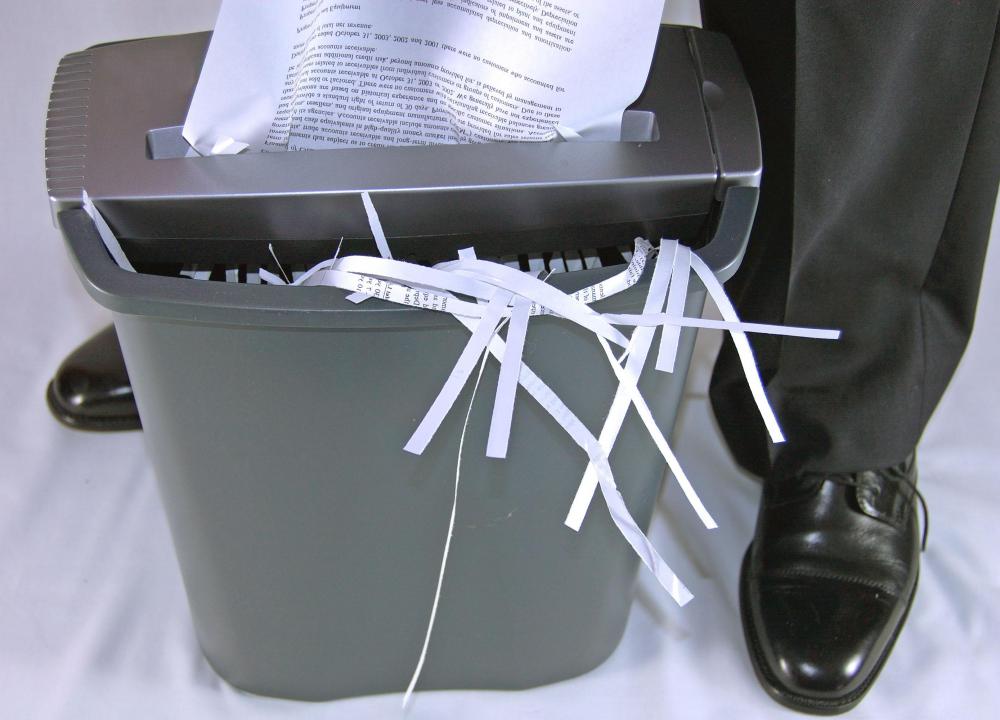At WiseGEEK, we're committed to delivering accurate, trustworthy information. Our expert-authored content is rigorously fact-checked and sourced from credible authorities. Discover how we uphold the highest standards in providing you with reliable knowledge.
How can I Deal with Identity Theft?
In the age of information, identity theft has been a growing problem. However, many government agencies work together to minimize the risk of identity theft and help people avoid the situation all together. If you do become a victim of identity theft, there are a number of things you should do to deal with the situation properly.
The first step you should take to deal with identity theft is to place a fraud alert on your credit reports and review your credit report to determine the occurrence of fraud. By placing a fraud alert on your credit report, you are preventing any subsequent accounts being opened in your name. You will need to contact all three major credit reporting agencies: Equifax, Experian, and TransUnion. After placing a fraud alert on file, you will be entitled to a free copy of your credit report from each agency. Review the report thoroughly looking for inquiries from companies you have not dealt with and for accounts you did not open.

While this first step is essential to dealing with identity theft, it only prevents a portion of the problems that can arise. Victims of identity theft must follow up with any suspicious activity and close all accounts that are fraudulent as well as those accounts that have been tampered with. Contact all companies maintaining a fraudulent account for the proper methods of filing disputes.

Victims of identity theft should also contact the Federal Trade Commission immediately. The FTC maintains an online complaint form as well as an identity theft hotline at 1-877-ID-THEFT (438-4338). You will be provided with a copy of your complaint and referred to other agencies that can assist you in dealing with identity theft. For example, if your social security number has been obtained, you will be directed to the Social Security Administration. Similarly, you may need to contact the United States Postal Service if you suspect your address may be being used fraudulently to obtain your mail.

Lastly, file a report with your local police or with the police department that has jurisdiction over the area where you believe the theft initially occurred. Take a copy of the complaint that was filed with the FTC and ask for a copy of the police report. These documents will serve you in legal litigation if necessary. These reports are also essential to resolve disputes with creditors, as many of them require the official reports before they will resolve a dispute.

The aftermath of identity theft can be devastating, both financially and personally. The aforementioned steps will help protect victims from further damage, but repairing damage that may have occurred before the victim is aware of the situation takes time. Once you have enlisted the support of government agencies, it may become necessary to consult an attorney depending on the type of identity theft that has occurred and the consequences. If you are impacted personally and emotionally, it may also be necessary to speak to a doctor or therapist.

Armed with the knowledge of what action to take and by garnering the support of professionals equipped to deal with identity theft, victims can get through this invasion of privacy and regain control of their lives. It simply takes persistence and time.
AS FEATURED ON:
AS FEATURED ON:
















Discussion Comments
Identity theft, hmmmm, I once needed to ask the help guys at friendster beta, where I used to have an account in 2005. I have been accessing the site using a public terminal, way back then.
It seems to me that the if you didn't log out properly, your page data could be maliciously changed. Now, I have switched to myspace and they have been very helpful.
Post your comments